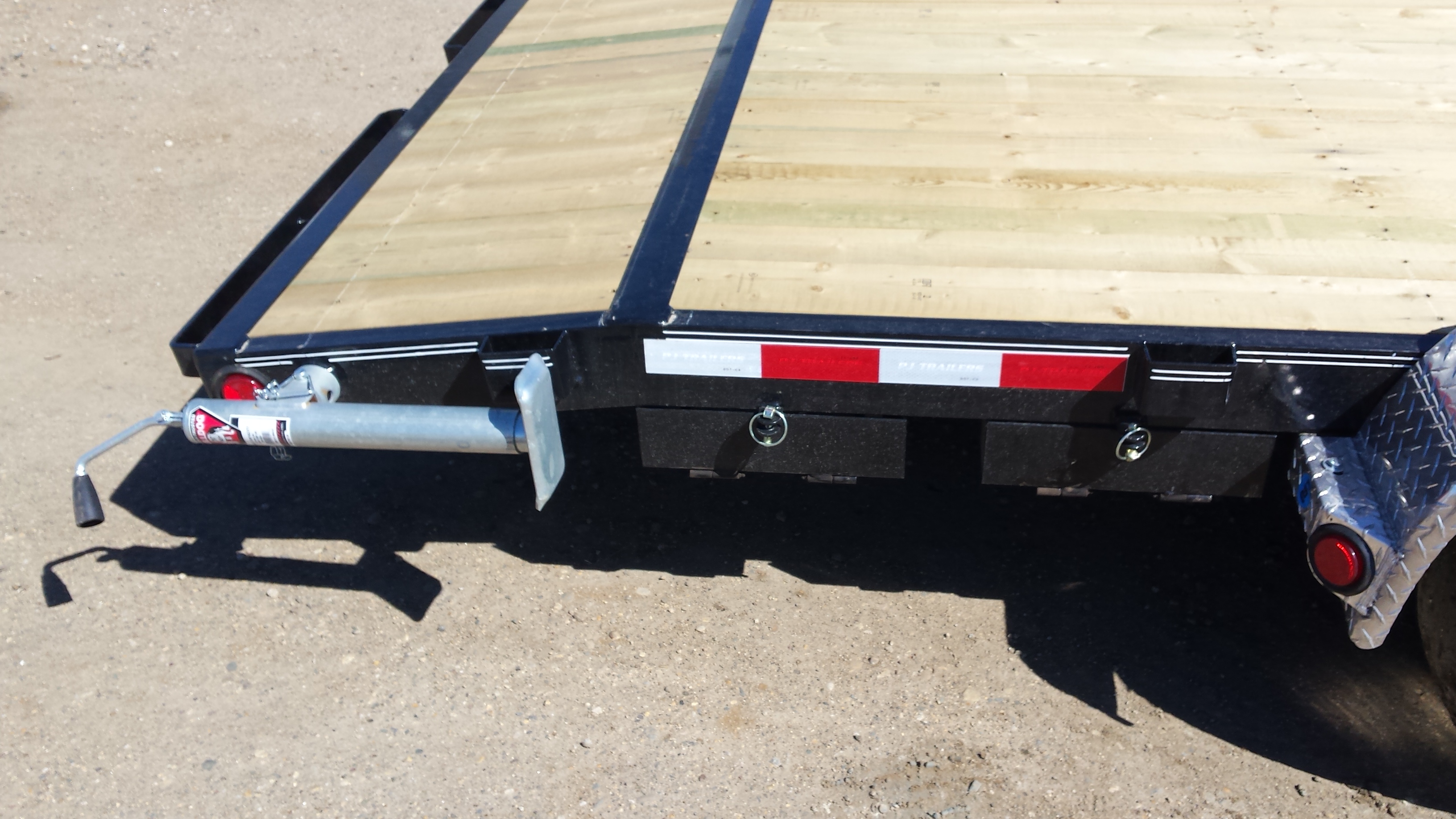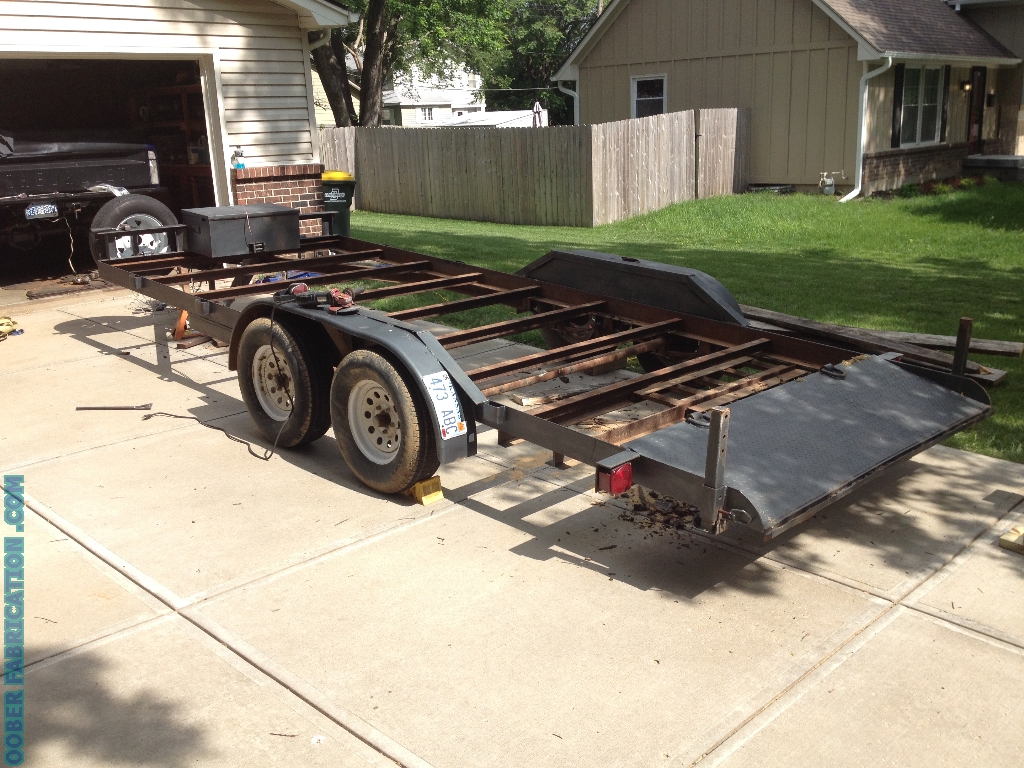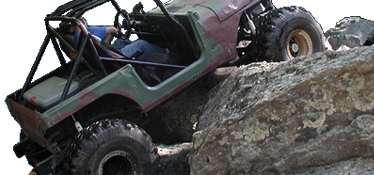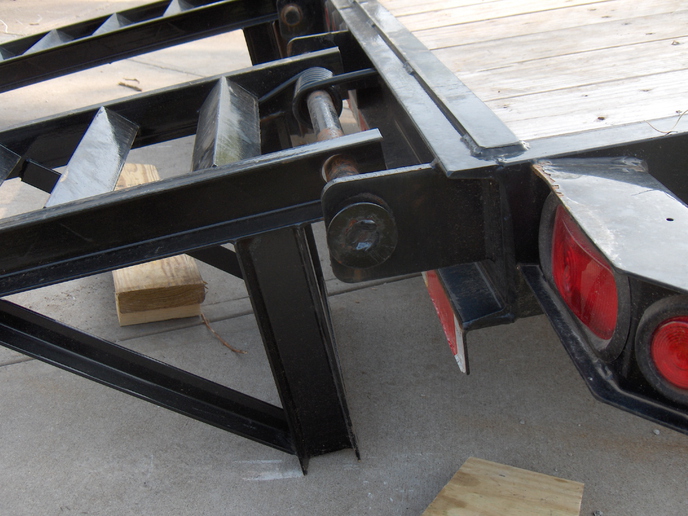You are using an out of date browser. It may not display this or other websites correctly.
You should upgrade or use an alternative browser.
You should upgrade or use an alternative browser.
22ft camper into jeep hauler build! Fuller style
- Thread starter marty79
- Start date
marty79
the LS Swap Guy
- Joined
- Nov 24, 2013
- Location
- Conover, NC
Legs like I've seen on a lot of trailer ramps? If so, good idea! I will get some madeLooking good dude. I would definitely add some legs to the rams. I had a camper trailer that bent while I was driving up on it. You want the support under the end of the trailer when loading.
Not on the ramps, on the sides of the dove tail. If the trailer frame is flexy, and the legs are on the ramps, when you transition from ramp to trailer the trailer will drop down.Legs like I've seen on a lot of trailer ramps? If so, good idea! I will get some made
Like this

http://www.mjtrailers.com/images/trailers/58e68899a7f83/20170406182737_20170406_121831.jpg
marty79
the LS Swap Guy
- Joined
- Nov 24, 2013
- Location
- Conover, NC
Oh never seen that before but looks like good idea too, so I would buy 2 of them obviouslyNot on the ramps, on the sides of the dove tail. If the trailer frame is flexy, and the legs are on the ramps, when you transition from ramp to trailer the trailer will drop down.
Like this
http://www.mjtrailers.com/images/trailers/58e68899a7f83/20170406182737_20170406_121831.jpg
I looked back and saw your ramps are hinged, so you could do it either way. Build feet on ramps or jacks on end. If your ramps just drop into a track, it needs to done like I posted.Oh never seen that before but looks like good idea too, so I would buy 2 of them obviously
marty79
the LS Swap Guy
- Joined
- Nov 24, 2013
- Location
- Conover, NC
They're on a roller thing.. 5/16 Square tube with 3/4 solid rod inside. Solid rod mounted to 3/8 tabs on end rail which is also 5/16 5x5 angle so it seemed to be overkill but nontheless strong enoughI looked back and saw your ramps are hinged, so you could do it either way. Build feet on ramps or jacks on end. If your ramps just drop into a track, it needs to done like I posted.
So some legs on the ramps and I will be ok then? Ramps are stationary also not removal if that makes a difference. Thanks for your help (and others).
WARRIORWELDING
Owner opperator Of WarriorWelding LLC.
- Joined
- Jan 6, 2008
- Location
- Chillin, Hwy 64 Mocksville NC
dirt simple, don't break, hard to steal.......
- Joined
- Mar 24, 2005
- Location
- Stanley, NC
They work better on the trailer instead of the ramps. Funny stuff happens when the weight goes on the trailer. Here's a great video that shows why you need them and why they make more sense on the trailer.
a_kelley
mechanical fixer
- Joined
- Jan 26, 2010
- Location
- Rutherfordton
They work better on the trailer instead of the ramps. Funny stuff happens when the weight goes on the trailer. Here's a great video that shows why you need them and why they make more sense on the trailer.
Looks like if they both were loading slower than they might have noticed before it was an issue.. or may not have went down that way, at least in the second. You watch the truck roll forward a foot.. I tend to put my towing vehicle in 4wd to load and unload to prevent rear axle unweighting from causing forward motion.
Croatan_Kid
How's your hammer hangin'?
- Joined
- Nov 4, 2007
- Location
- New Bern
The guy with the dually would have been fine had he just loaded on flat ground.
The other guy should have just slowed down, but I also don't think that trailer had any business hauling a full sized truck on it to start with.
The other guy should have just slowed down, but I also don't think that trailer had any business hauling a full sized truck on it to start with.
marty79
the LS Swap Guy
- Joined
- Nov 24, 2013
- Location
- Conover, NC
That's exactly how mine are as far as mounts
Tony Lane
New Member
- Joined
- Jan 25, 2018
- Location
- Las Vegas, Nevada, USA
Impressive build!
paradisePWoffrd
Recovering Project Junkie
- Joined
- Nov 5, 2005
- Location
- Newton, NC
if you want to fab something, I have seen a few trailers with these drop feet:

Jack is more flexible, but with enough holes in the leg, they work fine.

Jack is more flexible, but with enough holes in the leg, they work fine.
The guy with the dually would have been fine had he just loaded on flat ground.
The other guy should have just slowed down, but I also don't think that trailer had any business hauling a full sized truck on it to start with.
The first truck was heavily loaded with tires, meaning it was far too heavy for that trailer and the truck pulling it. As for why he didn't stop once the trailer started moving, I can't answer that one.
The second truck I assume wouldn't run, which is why they used the hill for momentum to load it. That video is a great example of why you should use a trailer mounted winch for loading non-operational vehicles.
- Joined
- Mar 24, 2005
- Location
- Stanley, NC
Its possible that the truck in the first video couldn't stop. I'm guessing that old Chevy has drum rears, and the fronts weren't doing anything since they were on the trailer. So you had about 2000lbs of weight on those rear tires, and crappy old drum breaks that probably couldn't lock them up anyway. So 3000lbs on the front of the truck, plus 1500 for the trailer, plus another 5-6000 in the front truck. Nearly 10,000lbs pulling downhill, trying to stop with squarebody chevy 10 bolt rear drums...
- Joined
- Mar 24, 2005
- Location
- Stanley, NC
They work better on the trailer instead of the ramps. Funny stuff happens when the weight goes on the trailer. Here's a great video that shows why you need them and why they make more sense on the trailer.
@shawn that first video reminds me of loading the backhoe on your trailer.
Croatan_Kid
How's your hammer hangin'?
- Joined
- Nov 4, 2007
- Location
- New Bern
The truck loaded with tires was a C20, if it matters 
It's possible the F350 wouldn't run...it's a Ford after all! He could have slowed down though, damn.

It's possible the F350 wouldn't run...it's a Ford after all! He could have slowed down though, damn.
Scooter402
Ruffling feathers and shaking trees
- Joined
- Feb 4, 2009
- Location
- Livin in an Amish Paradise
Not bad. I'd use solid links to hold those ramps up rather than chain, though. The first bump you hit, you'll be making sparks going down the road. Or, possibly create one helluva road hazard for some unsuspecting car behind you.
C.Berry
Bad News
- Joined
- Aug 10, 2008
- Location
- Blacksburg, Va
Is a great idea! My boss bought a 93 Cummins from a fella and it had a smashed cab and bed, he asked what happen and his brother had a tractor loading on a trailer it lifted rear up bc he forgot to put jacks down it rolled and jack knifed and killed him...Oh never seen that before but looks like good idea too, so I would buy 2 of them obviously
that poor truck prolly had factory brake shoes on it that had never been adjusted! LolIts possible that the truck in the first video couldn't stop. I'm guessing that old Chevy has drum rears, and the fronts weren't doing anything since they were on the trailer. So you had about 2000lbs of weight on those rear tires, and crappy old drum breaks that probably couldn't lock them up anyway. So 3000lbs on the front of the truck, plus 1500 for the trailer, plus another 5-6000 in the front truck. Nearly 10,000lbs pulling downhill, trying to stop with squarebody chevy 10 bolt rear drums...
My 79 12 bolt rear drums will lock up 35s no prob and shoes are shot on it!


